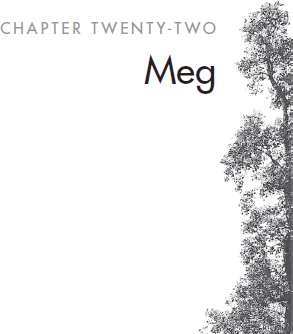After all the rain that had fallen, the trees that fruited first were heavy, and the early evening sky was thick with bats. There was a hum of bees, so we knew the trees and vines that fruited later would be laden too. Green vegetables needed saving from cabbage moths and caterpillars, and Rosemary and I spent much time peppering outer leaves and souring soil with onion water.
Mrs Robinson grew fatter and fatter in the sun and disappeared for five days towards the end of May, returning proud and hungry with a sagging soft-fur belly and an appetite for fish.
I thought Rosemary might like a kitten. Maybe Lily too, though spiders seemed to worry her more than mice or rats. I would put another sign up on the library noticeboard: Free to a good home, though I wondered how anyone could ever tell at a glance if a person had one. I don’t know that I’d have been given a kitten that was only to go to a good home, but Mrs Robinson was happy. Free to a good person, I thought I might write on the card this time. Free to a loving home.
She led me to her babies. Tiptoeing ahead, she took me up the steep, green strip the mudslide had made way for. Spindly trees and shrubs and grasses grew, gorging on sunlight which hadn’t touched the ground in who knew how long. I was surprised how far she’d wandered. Straight up we went and into bush that had hung on tighter. The ocean spread out behind us, still as treacle, lapis blue; you couldn’t see the oysters or the mud or the no-beach.
There were four kittens, bundled in a mossy nest my clever girl had built between the roots of a tree. Small and helpless, their eyes glued tight, and when I bent to lift them into the sweatered box I’d brought to take them home, I saw that one of them was dead. His matchstick ribs not moving, and his open mouth already filled with ants, he was his mother’s scribbly brown, and I carried him off a little way to where candy orchids grew in longer grass.
I saw it as I threw him. Half dug up at the foot of a strangler fig. A lump of garden-grade plastic bag and fabric.
I wouldn’t have seen it if I’d turned the other way.
I wouldn’t have known what it was, if it hadn’t been worried by paws and claws, if its wrapping had not been torn apart. I might have thought it was only rubbish dumped.
If it hadn’t been so close, if the bush that led there hadn’t been so thinned by summer storms, I might not have seen the stump of what was left.
‘If ifs and ands were pots and pans there’d be no need for tinkers,’ my grandmother used to say, but if Mrs Robinson hadn’t had her kittens where she did, if the littlest of them had survived, if the rain hadn’t fallen all at once and scraped a path down through the bush, they might never have found Jessie Else at all.
